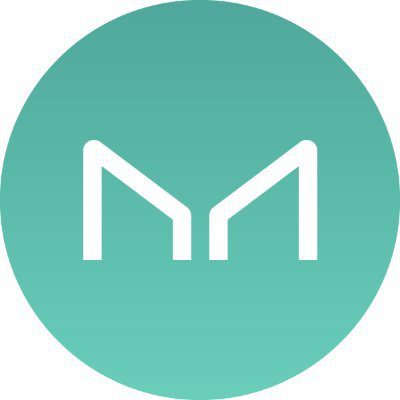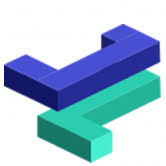11 Best DeFi Stacking Platforms in 2025
Jan 28, 2025
In the year 2025, the DeFi sector is still expanding, providing users with various chances to stake their cryptocurrency assets. Due to the growing interest in DeFi platforms, numerous individuals are looking for the “best DeFi staking platforms” to optimize their investments. These platforms provide users with the opportunity to engage in the decentralized finance ecosystem by staking their digital assets and earning rewards.
As DeFi development evolves, more secure and user-friendly platforms are emerging, allowing investors to safely stake their tokens. Whether you are looking for “trusted DeFi staking platforms” or curious about how staking works, it’s important to choose platforms that offer high returns with low risk. This will help you make informed decisions about where to stake your assets in 2025.
What is a DeFi Staking Platform?
The process of building a reliable DeFi platform where users can intentionally lock their cryptocurrency assets in a smart contract in exchange for acquiring validator rights in the PoS consensus mechanism is known as defi staking platform development.
Today, crypto staking platforms are assisting contemporary users in gaining access to a wide range of passive income prospects that go beyond crypto trading and allow them to monetize their crypto assets.
How DeFi Staking Works?
DeFi (Decentralized Finance) staking allows users to lock their cryptocurrency in a decentralized network to earn rewards. Here’s how it works:
- You choose a DeFi platform that offers staking services.
- Deposit your cryptocurrency into a staking pool.
- The platform uses your coins to support blockchain operations like validating transactions.
- In return, you earn rewards, usually in the form of more coins or tokens.
- The rewards depend on the amount you stake and the duration.
- DeFi staking eliminates the need for intermediaries, offering higher returns but also higher risk.
Top 11 DeFi Staking Platforms in 2025 and beyond
1. MakerDAO (MKR)

MakerDAO is one of several new decentralized finance (DeFi) cryptocurrencies. MakerDAO is also a component of the Maker protocol, a bigger system that employs a variety of crypto assets to run and maintain DAI without the involvement of a bank or government.
If DAI is saved on the platform, MKR holders can choose how much DAI holders earn. The DAI Savings Rate is the revenue that DAI holders receive as a result of doing this.
Blockchain: Ethereum
Total Value Locked: $7.83b
2. Lido (LDO)

The creative and commercial of staking services for Ethereum, a process that enables owners of the Ether cryptocurrency to generate passive revenue without having to sell their tokens, is now the DeFi,in platform Lido Finance.
In exchange for rewards, which are based in part on the number of new tokens created and fees collected, the staked coins are utilized to aid in transaction validation and network security.
Blockchain: Ethereum
Total Value Locked: $6.73b
3. Curve (CRV)

The Curve Finance governance token is called CRV. To convert CRV into veCRV, which is an internal token created for governance purposes and has the right to claim the cash flows produced by the protocol, a complicated time-based staking system was devised.
Curve Finance is an automated market maker protocol created for slippage- and fee-free switching between stablecoins. Anyone can add their assets to a number of different liquidity pools through this decentralized liquidity aggregator, earning fees in the process.
Blockchain: Ethereum
Total Value Locked: $5.48b
4. Uniswap (UNI)

In Uniswap Users can exchange ERC-tokens using Uniswap, which then pools the traded tokens into smart contracts. The majority of users then transact using the liquidity pools. Tokens can be added by individuals to a pool that generates fees. On Uniswap, you have the option to swap or list a token.
With Uniswap, liquidity staking is a special procedure that makes use of an automated liquidity protocol. You require ETH and an ERC-20 secure wallet in order to participate in Uniswap liquidity staking. by participating in Uniswap liquidity pools, you can exchange (swap) your ERC-20 tokens. There is no requirement for an order book or a centralized party because Uniswap is an Automated Liquidity Protocol.
Blockchain: Ethereum
Total Value Locked: $5.39b
5. AAVE (AAVE)
From a specialized network, Aave has grown to become one of the biggest Decentralized Finance (DeFi) systems available. Aave’s liquidity pools accept user deposits of Ethereum-based (ERC-20) tokens, Borrowers and lenders have the option of choosing a fixed or variable yearly percentage yield (APY).
Staking a cryptocurrency is very similar to making a deposit into a term or finance bond. You can benefit from the interest by allowing a blockchain or application to use your holdings.
Blockchain: Ethereum
Total Value Locked: $5.01b
6. Balancer (BAL)

On the Ethereum blockchain and other EVM compatible systems, Balancer is a community-driven protocol, automated portfolio manager, liquidity provider, and price sensor that enables decentralized trading and automated portfolio management of tokens.
Similar to Uniswap, Balancer operates by adding up to eight tokens to a single pool as opposed to Uniswap’s two. Additionally, it is not necessary for ETH to be one of the tokens in the pool, but ETH is coupled with all Uniswap currencies.
Blockchain: Ethereum
Total Value Locked: $1.47b
7. Convex Finance (CVX)

A creative DeFi system called Convex Finance (CVX) was developed on top of the Curve Finance stablecoin exchange. Fundamentally, Convex compensates CRV stakeholder and Curve liquidity providers with higher DeFi yields.
Convex Finance pools user CRV assets to buy more CRV, convert it to veCRV, and then distributes the most veCRV to all Curve LP token owners. To earn all of the CRV incentives, CVX Finance boosts the reward boost.
Blockchain: Ethereum
Total Value Locked: $3.95b
8. Just Lend (JST)

The very first official TRON lending platform where users may borrow, lend, deposit assets, and earn interest. An algorithm based on the supply and demand of TRON assets determines the interest rates for fund pools created using the JustLend money market protocol.
The depositor and borrower are the two roles that make up the protocol. To earn or pay the fluctuating interest rate, either of them can directly engage with the protocol.
Blockchain: Tron
Total Value Locked: $3.18b
9. PancakeSwap (CAKE)

PancakeSwap Farming has recently emerged as the most well-liked and fashionable yield farming project. On the Binance Smart Chain, it operates. Staking is not a resource-saving alternative to mining, despite what is commonly believed. In this method, money is kept in the cryptocurrency platform’s wallet. Additionally, it aids in maintaining the blockchain network.
Additionally, it helps a blockchain network function. The primary goals of using this are to generate rewards and promote the efficient operation of the blockchain network.
Blockchain: Binance Smart Chain
Total Value Locked: $2.9b
10. Yearn Finance (YFI)

Yearn.Finance is an open-source, Ethereum-based decentralized finance (DeFi) lending protocol. By automatically transferring user funds between DeFi lending protocols like Compound, DyDx, Curve, or Aave, it functions as a yield aggregating platform to maximize the user’s investment.
After the general public recognized the possibilities of staking crypto assets for a passive income, yield farming gained popularity. In the yEarn protocol, yield farming involves moving cryptocurrency assets in conjunction with the pursuit of a liquidity pool that offers the best APY week after week.
Blockchain: Ethereum
Total Value Locked: $492.8m
11. Compound (COMP)

Compound is a decentralized protocol that creates money markets with interest rates determined by algorithms based on supply and demand, enabling users to exchange the time value of Ethereum assets without any friction. Without having to discuss parameters like maturity, interest rate, or collateral with a peer or counterparty, suppliers and borrowers of an asset engage directly with the protocol while earning and paying a floating interest rate.
Blockchain: Ethereum
Total Value Locked: $2.36b
Future of DeFi Staking and Trends to Watch
DeFi staking is quickly developing as more users seek opportunities to generate passive income through locking their cryptocurrency assets. As blockchain technology advances, staking platforms are becoming increasingly user-friendly and secure. One common question people have is, “How can I safely stake my crypto to maximize rewards?” DeFi Trends in 2025 indicate that there will be improved compatibility among platforms, making staking easier and more lucrative. Investors are seeking new methods to manage risk and reward effectively in this expanding sector.
Conclusion
The basics of cryptocurrency staking have been explained in this thorough blog. This is a list of the top DeFi Staking platforms for 2025 in addition to that. Spend some time generating ideas for the needs, goals, target market, problems, and expectations of the company. When it comes to providing global next-generation DeFi staking platform development services, Blockchain Technologies may be your digital partner. We provide decentralized finance development business with an industrial experience staff of 50+ subject matter experts, supported by years of experience and exposure to a worldwide market. Get a free consultation that will revolutionize the DeFi ecosystem, schedule one today!
FAQ’s
Cryptocurrency staking involves holding funds in a digital wallet to support the operations of a blockchain network. In the context of DeFi platforms, staking allows users to participate in network validation and governance by locking up their assets to earn rewards.
The best DeFi staking platforms in 2025 may vary based on factors like security, user experience, token offerings, and rewards. Platforms like Aave, Compound, and Synthetix are popular choices known for their robust staking mechanisms and community support.
Individuals interested in staking their cryptocurrency on DeFi platforms should consider factors such as platform reputation, staking rewards, token economics, security measures, and community engagement. It’s important to conduct thorough research and understand the risks and rewards associated with staking before getting started.
DeFi platforms implement various security measures such as smart contract audits, multi-signature wallets, and insurance funds to protect users’ assets when staking. Users should also follow best practices like using hardware wallets and practicing good security hygiene to safeguard their funds.
DeFi platforms may support staking for a variety of cryptocurrencies, but the availability of staking options can vary. Users should check the specific platform for supported assets and any limitations on staking different types of cryptocurrencies.
While DeFi platforms offer high rewards, it’s important to choose reputable platforms with strong security measures to reduce risk.
